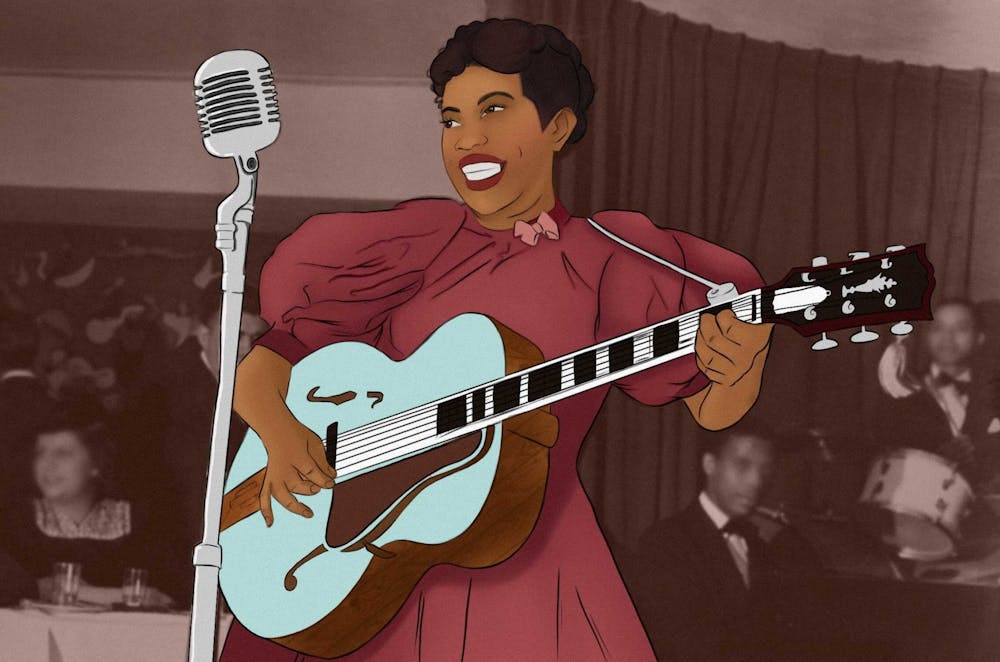AC/DC, Kiss, Bon Jovi, The Rolling Stones, Jimi Hendrix, Little Richards and Prince. All these musicians have contributed to and played rock ‘n’ roll.
Growing up, rock ‘n’ roll was characterized as white people music, devil music, weird, etc. Even the artists I was taught about in school were commonly white, therefore the genre was seen as a hallmark of Americanized white culture.
Now imagine a black kid, we either were them or knew them, someone who listened to these bands. People with a grunge aesthetic typically. I was one of these kids and the thing I heard the most was, “That’s that white music,” or “Why you listening to that white people music?” It was just as annoying as it was repetitive.
But did you know none of these artists would exist had it not been for a Black, Queer woman? Her name was Rosetta Tharpe.
Tharpe, born Rosetta Nubin, was born in 1915 in Cotton Plant, Arkansas. Her mother was Katie Bell, who Tharpe sang with when she was as young as 6 years old. Bell and Tharpe toured in an evangelical troupe to perform at various church occasions and meetings. Due to being in this troupe, Tharpe became known nationwide as a musician and singer.
Rock ‘N’ Roll was born from the marriage of gospel music, electric guitar and jazz/ blues. Her music was a precursor to the genre of the electric blues, and her song “Strange Things Happening Every Day” with Sammy Price has been called both a precursor of rock and roll and the first rock and roll record, according to a biography by Gayle F. Wald. With songs like “Tall Skinny Papa” which has risqué lyrics, Tharpe at times offended her gospel fans.
This wasn’t the only way Tharpe was challenging the norms of her time as it was a relatively open secret she was either bisexual or queer.
Tharpe would tour with her partner, Marie Knight, with Rosetta playing the guitar and Knight playing the piano, according to a biography from The Ohio State University.
Their relationship was known within the music industry, but was kept a secret from the public by Tharpe. One of their more well known songs is “Up Above My Head, I Hear Music In The Air.”
Knight was traumatized and drifted away from Tharpe after her mother and two children died in a fire.
As usual when it comes to history, especially American history, despite Tharpe being credited with inspiring legends like Johnny Cash, Jerry Lee Lewis, Little Richard and Elvis Presley, many people don’t know about her trailblazing influence.
Rosetta Tharpe paved the way for rock ‘n’ roll despite challenges from the gospel community, racism and sexism. So it might do you some good to do your research before you tell someone, “that’s that white people music.” Chances are it’s another thing the Black community popularized first.






